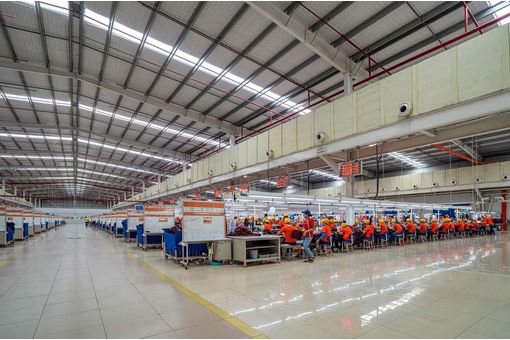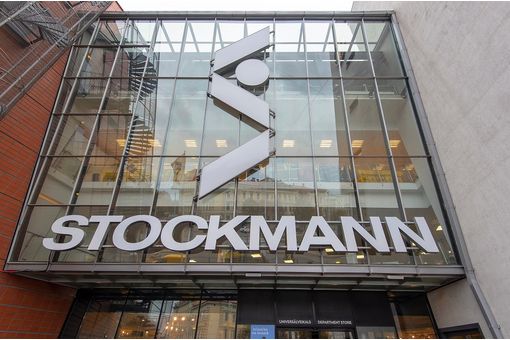Interviews
The dark side of Bengaluru's garment factories
06 Feb '16
5 min read
In a damning indictment of the apparel industry, a paper published by the India Committee of the Netherlands (ICN), a human rights organisation dedicated to improving the lives of the marginalized in South Asia, says young migrant garment workers in Bengaluru live in appalling conditions and face restricted movement.
According to the ICN paper, 'Unfree and Unfair' - an increasing number of young migrant women workers are staying in factory-owned hostels with poor living conditions while their movement is severely restricted. The wages of the workers do not add up to a decent living wage.
The hostels are run by garment factories in Bangalore that produce for leading multinational brands like C&A, H&M, Tommy Hilfiger, Inditex and GAP. These companies have promised a number of specific actions to provide migrant garment workers with better living conditions in Bangalore.
Unfree and Unfair explains the conditions for migrant workers in four garment factories – K Mohan, Texport Industries, Arvind and Shahi Exports – located in Bangalore, the major hub for the garment industry in South India. Arvind Ltd. Exports produces garments for H&M and Shahi Exports is a long term supplier for C&A. The research is based on a mix of desk research and interviews with 110 workers, additional discussions with workers from other factories and interviews with members of the Garment Labour Union (GLU) in Bangalore.
"Nothing is good. But we are staying here because we have to live and there is no other way," said a worker at Arvind about the conditions at the factory-owned hostels for migrant workers. Women workers are only allowed to leave the hostel once a week, which is usually for two hours on Sundays. They can only leave the hostel after registering with the security guard, who some think has to "... ensure that we do not leave for our villages after taking our salary." Workers also complain that they are not allowed to take leave.
The workers are generally unhappy with the available facilities and the lack of provisions for recreation. All hostels run by the garment factories lack basic amenities, such as proper furniture, cupboards, beds and mattresses. In most cases, money is deducted from the workers' salary for accommodation, electricity and water. As reported by workers staying at the Arvind-run hostel, there is no kitchen facility, the hostel is not clean and the water supply is irregular. The migrant workers do not speak or understand the local language, which makes them more vulnerable for exploitation. For example, K Mohan factory had separate hostels for migrant workers from North India, who paid around Rs 2045 for food and accommodation, while local workers paid around Rs 1439 per month for the same in their own hostels.
On average the garment workers receive between Rs 7,196 and Rs 8,711 per month, which is just above the official minimum wage in the range between Rs 7,045 to Rs 7,802 with effect from April 1, 2015. However, these wages do not add up to a decent living wage.
According to the ICN paper, 'Unfree and Unfair' - an increasing number of young migrant women workers are staying in factory-owned hostels with poor living conditions while their movement is severely restricted. The wages of the workers do not add up to a decent living wage.
The hostels are run by garment factories in Bangalore that produce for leading multinational brands like C&A, H&M, Tommy Hilfiger, Inditex and GAP. These companies have promised a number of specific actions to provide migrant garment workers with better living conditions in Bangalore.
Unfree and Unfair explains the conditions for migrant workers in four garment factories – K Mohan, Texport Industries, Arvind and Shahi Exports – located in Bangalore, the major hub for the garment industry in South India. Arvind Ltd. Exports produces garments for H&M and Shahi Exports is a long term supplier for C&A. The research is based on a mix of desk research and interviews with 110 workers, additional discussions with workers from other factories and interviews with members of the Garment Labour Union (GLU) in Bangalore.
"Nothing is good. But we are staying here because we have to live and there is no other way," said a worker at Arvind about the conditions at the factory-owned hostels for migrant workers. Women workers are only allowed to leave the hostel once a week, which is usually for two hours on Sundays. They can only leave the hostel after registering with the security guard, who some think has to "... ensure that we do not leave for our villages after taking our salary." Workers also complain that they are not allowed to take leave.
The workers are generally unhappy with the available facilities and the lack of provisions for recreation. All hostels run by the garment factories lack basic amenities, such as proper furniture, cupboards, beds and mattresses. In most cases, money is deducted from the workers' salary for accommodation, electricity and water. As reported by workers staying at the Arvind-run hostel, there is no kitchen facility, the hostel is not clean and the water supply is irregular. The migrant workers do not speak or understand the local language, which makes them more vulnerable for exploitation. For example, K Mohan factory had separate hostels for migrant workers from North India, who paid around Rs 2045 for food and accommodation, while local workers paid around Rs 1439 per month for the same in their own hostels.
On average the garment workers receive between Rs 7,196 and Rs 8,711 per month, which is just above the official minimum wage in the range between Rs 7,045 to Rs 7,802 with effect from April 1, 2015. However, these wages do not add up to a decent living wage.
Popular News
Leave your Comments
Editor’s Pick
Apparel/Garments
Apr 28, 2024
2 min read
Retail
Apr 28, 2024
2 min read
Apparel/Garments
Apr 28, 2024
2 min read
































-Ltd..jpg?tr=w-120,h-60,c-at_max,cm-pad_resize,bg-ffffff)





.jpg?tr=w-120,h-60,c-at_max,cm-pad_resize,bg-ffffff)
.jpg?tr=w-120,h-60,c-at_max,cm-pad_resize,bg-ffffff)






